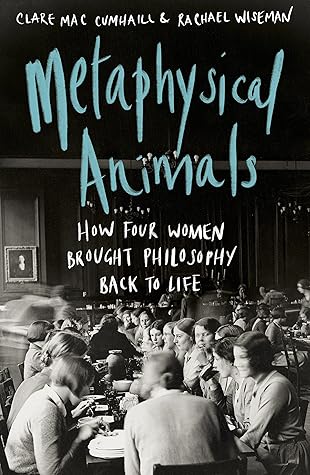More on this book
Kindle Notes & Highlights
Read between
October 2 - October 21, 2025
A human individual, Aristotle had argued, is a kind of organised body.41 Not mind plus matter, but matter organised according to a form. Humans are not the only kind of organised body – cats and turnips are organised bodies too. Indeed, every living kind is matter conforming to an organising principle – an organism. Aristotle calls the organising principle a soul – so according to his philosophy, turnips have souls just as much as cats and humans. The vital operations of vegetative life – for example turnip life – include nutrition and reproduction, and these operations form the pattern, the
...more
Elizabeth began to see a new way to describe the soul of a human. Not an efficient calculating machine, but a social, creative, curious, spiritual animal.
Wittgenstein’s philosophy, Philippa would later tell her students, ‘really needs to be done live, with two people, one trying to articulate what one naturally wants to say, the other trying to get deep into their head and diagnose what is going wrong’.
for Wittgenstein, a dictionary was a tool that could be used to settle the definition of a word only after almost everything about language and life was already understood. The place to look for the rules of a language is not in a list of definitions, words understood in terms of other words, but in the human practices in which sound, action, nature, instinct and culture weave together to create living patterns of significance and sense.
Philippa’s point is a simple and elegant extension of Wittgenstein’s: our evaluative language does not peel off the world, leaving behind a stripped-out, valueless scene that we might call ‘reality’ or ‘nature’. Rather, an evaluative description makes sense only when it is located in a pattern of human life.
Poetry, art, religion, history, literature and comedy are all the metaphysician’s tools. They are how metaphysical animals explore, discover and describe what is real (and beautiful and good).
For Sartre (in Occupied France), as for Wittgenstein (in the trenches of the First World War) and for Hare (in a prisoner-of-war camp), ‘[t]he fundamental moral predicament is the same’.144 To choose and keep on choosing, where every choice creates oneself and one’s world anew. Elizabeth’s words echo: ‘This means to one sheer despair.’ And Sartre’s novels show why: by ‘display[ing] in detail the adventures of the beings who are in this situation of having no guarantee’.


